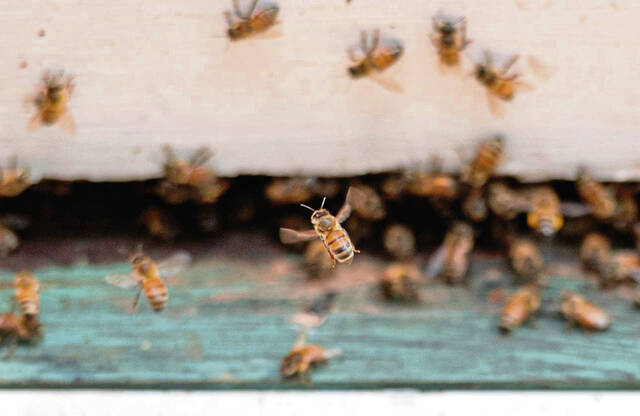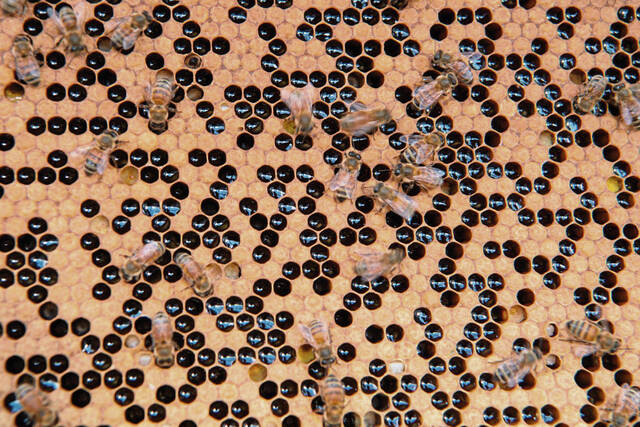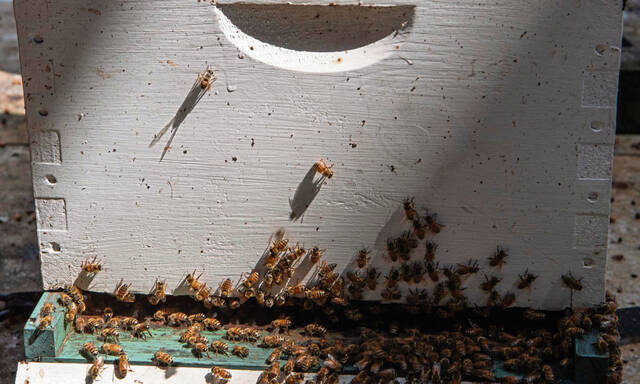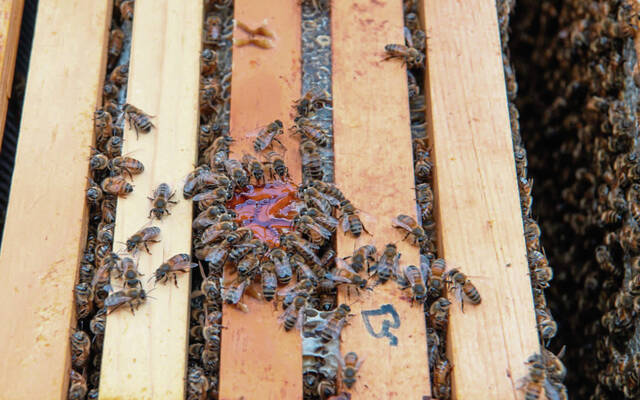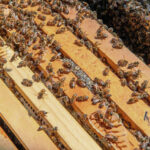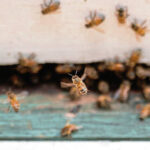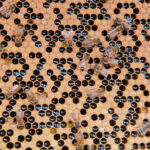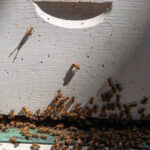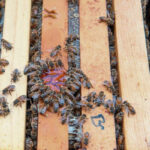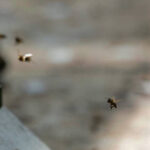On top of the former steel mill along the Monongahela River, a couple of thousand lives are thriving. And buzzing.
To keep an eye on them, one must climb a ladder to the roof and duck beneath a dozen or so steel I-beams that crisscross the top of the 1,200-foot-long building to get to two small structures — filing-cabinet-looking things where honeybees have made their homes for the last three years.
Mill 19 was built in the early 1940s by Jones and Laughlin to house munitions production during World War II and later used as a rolling mill. Today, it’s a far cry from those smokier days. RIDC has revamped the building, giving it its current name and getting it certified as LEED (Leadership in Energy and Environmental Design) Platinum, a rating by the U.S. Green Building Council that gives points for things like energy efficiency, biodiversity and sustainable practices.
Mill 19 supports the largest rooftop solar array in the U.S. and uses landscaping that fosters native plants for butterflies and rainwater recycling.
Part of that eco-minded approach is the honeybees.
A swarm was discovered during construction. RIDC called in Jeffrey Allan Shaw, a third-generation beekeeper from Swissvale who runs Bees Galore Apiaries and serves as president of the community apiary, Burgh Bees, which trains up-and-coming beekeepers.
Shaw manages about 300 hives between Western Pennsylvania, New York and Michigan, including the Mill 19 hives, with about 70,000 bees. He also manages another RIDC location — the Westmoreland Innovation Center in New Stanton, which houses about four colonies, totaling about 300,000 bees.
RIDC isn’t alone in watching out for pollinators. For instance, the Duquesne Club and BNY Mellon in Downtown Pittsburgh have rooftop hives. Nova Place on the North Shore does as well.
“A lot of people are afraid of bees,” Shaw said. “But as long as you’re gentle with the bees and calm, they will be, too.”
The Mill 19 bees get pollen from the wildflower gardens planted around Hazelwood Green and surrounding neighborhood.
The hives aren’t commercial enterprises. The honey produced is kept for the bees while they hibernate, starting in late October. If anything is left over in the spring, Shaw gives it to RIDC.
“The Westmoreland hives are bigger and there’s a lot of biodiversity out there, so they bring in more honey than here in the city,” Shaw said.
The biz of bees
Honeybees are critical to the food system.
Three-fourths of the world’s flowering plants and about 35%of the world’s crops depend on animal pollinators to reproduce — that’s one out of every three bites of food you eat, according to the U.S. Department of Agriculture.
Shaw, like other beekeepers, travels the country with bees in tow to farms to help farmers pollinate their crops. Almonds, a $5 million industry in the U.S., are a huge draw.
“You basically have all these commercial beehives in the United States, whether they’re from Maine, Vermont, North Dakota, South Dakota, Georgia, going to Central California in January for almond pollination, Shaw said. “You got 2.5 million to 2.7 million hives entering the Central Valley.”
But bees are under pressure, Shaw notes.
“It’s a multi-pronged issue,” he said. That includes colony collapse disorder, loss of habitat and biodiversity, chemical pesticides, invasive species.
An annual survey by the nonprofit, Bee Informed Partnership, found that between April 2022 and April 2023, beekeepers in the United States lost an estimated 48.2% of their colonies, which was 9.2% higher than the previous year.
The local nonprofit, Burgh Bees, aims to train beekeepers in the craft.
“Western Pennsylvania has a pretty big concentration of beekeepers, just because of the community apiary and because of the nonprofit,” Shaw said.
“A lot of people say they want to keep bees, do it for a year, and they drop out,” Shaw said. “But people in Pittsburgh are a little more resilient and want to make it happen. And we have the educational support here and master beekeepers in the area. The city of Pittsburgh allows backyard hives.”



